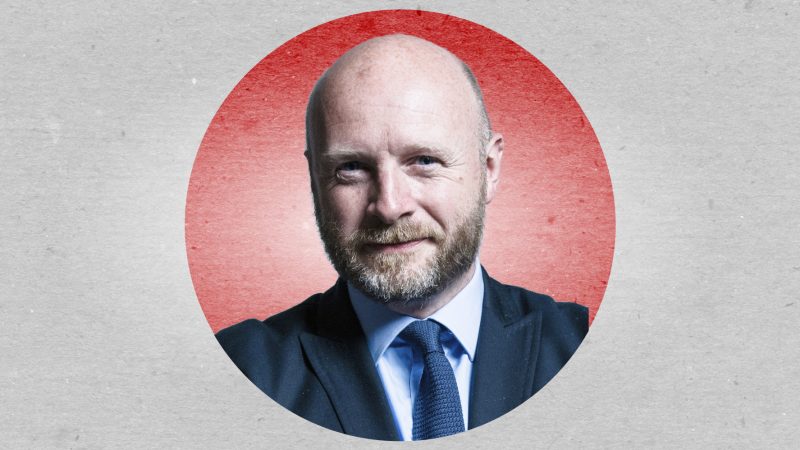
There’s an old truth in Westminster that the better a Budget lands on budget day, the faster it falls apart. Unfortunately, the shortcomings of last week’s summer statement were clear within hours.
Right now, people across our country want us to pull together to get back on our feet – and people know that we need to trade our way back to recovery. That’s the only way that as a country we’ll have the sort of investment we need to pay for our NHS and carers who have been worth their weight in gold during the Covid crisis. It was desperately worrying that in last week’s summer statement, there was a huge hole where new support for manufacturing should have been.
Today, our manufacturing sector faces what many employers are privately warning is a ‘tsunami’ of job losses. Across the West Midlands nearly 300,000 people in the manufacturing, construction and automotive trade are furloughed. Nationwide, nearly 8,000 manufacturing job losses have already been announced by Rolls-Royce, McLaren, Bentley, Aston-Martin, Jaguar Land Rover and Arlington Automotive. Across the manufacturing industry, firms now expect a recovery to take 12-24 months.
During the last recession, the government stepped up to the plate to help save the car industry, the backbone of manufacturing in our region. As a Labour government, we set aside £2.3bn to support the motor industry, of which about £1.3bn was in the form of guarantees for loans to support innovative and ‘green’ technology. The remaining £1bn took the form of direct loans or other loan guarantees.
This investment saved countless jobs, including at Jaguar Land Rover in the Midlands, and Vauxhall in the North West. We set up the transformative scrappage scheme, pumping much needed demand back into the economy. And we acted on other fronts, such as establishing the Future Jobs Fund, the Technology Strategy Board and R&D tax credits. Most innovative of all was the creation of the Automotive Council, which brought together government and the industry to establish a strategic plan and drive up investment. We need this sort of boldness again today.
This recession is the biggest since at least the 1930s. That’s why we’re launching our campaign to Save Our Manufacturing. Drawing together ideas from the TUC and trade unions like Unite and the GMB, industry groups such as the Society of Motor Manufacturing and Traders, and experts like the Warwick Manufacturing Group, we’re calling for immediate action to support for wages to protect jobs with a jobs guarantee scheme or flexible short-time working support. Industry groups and unions are unanimous on the need for a furlough scheme that goes far further than Rishi Sunak announced. Last week, he had the temerity to say that workers were ‘trapped in jobs’. There spoke a man with absolutely no conception of the alternative: a life trapped in poverty.
Second, we need emergency measures to stimulate market demand with subsidies for purchase of new vehicles. The German plan includes a €6,000 subsidy for electric vehicles, alongside a reduction in VAT from 19% to 16%. We need something similar, plus 12-month capital write-down allowances to incentivise fleet purchases and flexibility to support good reductions in transport emissions as we move to increase the capacity of full EV production. This should be allied with using public procurement to replace public sector fleets and stimulate demand.
Third, we need flexible access to finance and support for firms attempting to restructure and reshape themselves to adapt to the new economic environment. The government has taken a series of radical steps to support business – but there are huge gaps in the announced package of support for larger firms. We must be brave, investing now, using equity stakes and public procurement as strategic tools to bring forward public projects to help manufacturing through the toughest times in living memory. These steps would get us through the crisis. They would give us the breathing space to put in place a truly transformational plan and help make our region Britain’s capital of green manufacturing.
That would take a proper capital kickstart to deal with rising unemployment and build new infrastructure like new renewable energy capacity, and high-speed, fibre optic broadband networks. It would need a proper Council for Recovery and a Regional Development Council for the region, helping to coordinate public procurement to build local/buy UK strategy and supporting the acceleration to the green economy.
Crucially, we need proper sector skills councils overseeing a ‘right to train and retrain’, plus an ambitious set of sector deals to kickstart the industries and the jobs of the future in automotive, energy generation, retrofitting, building zero energy homes, hydrogen and aerospace support. That must come with a step change in R&D for Made in the Midlands manufacturing, targeted support for long-term investment, and a programme to turn derelict brownfield sites in the West Midlands into new green industrial zones.
Across the West Midlands – and, I suspect, many former ‘Red Wall’ seats – there is an extraordinary pride in our past, in our case as the home of the industrial revolution. There is deep knowledge, a sense of vocation, and a culture of innovative skill. These are exactly the assets we need to build a future as the epicentre of green manufacturing – but if we’re to unlock that future, we need a manufacturing industry to save. And right now, that is going to take a lot more than we heard last week.




More from LabourList
Letters to the Editor – week ending 1 March 2026
‘I spent years telling workers the law couldn’t help them – that has changed’
Josh Simons resigns as Cabinet Office minister amid investigation